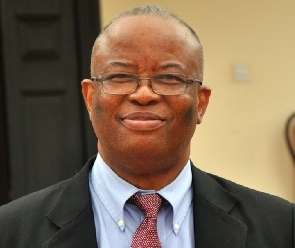Professor Fred Binka, a Clinical Epidemiologist, the School of Public Health, University of Health and Allied Sciences, Ho, has called for the conversion of the COVID-19 Health Recovery Levy into a Public Health Emergency Fund (PHEF).
In an interview, he told the Ghana News Agency that there was no need to keep the COVID-19 health levy, as the government had declared that coronavirus was no longer a public health threat.
“What will be nice is for the levy to be used to create a Public Health Emergency Fund to support the country’s preparation for the next pandemic,” he said.
Prof Binka advised that the management of the PHEF when created, should be left to a constituted board of trustees and not to the Ministry of Finance.
“If the Ministry of Finance wants to help, then they should be part of the committee, but they should not be left to manage the funds,” he said.
The COVID-19 Health Recovery Levy Act, 2021, (Act 1068), imposes a one per cent special levy on the supply of goods, services, and imports, to raise revenue to support COVID-19 expenditure and to provide for related matters.
The rate is calculated on the value of the taxable supply of goods, and services, or the value of imports.
President Nana Addo Dankwa Akufo-Addo, in his 29th televised address to the nation on measures taken to contain the COVID-19 pandemic, announced that the disease was no longer a public health emergency of global concern.
“The emergency is over, and we can safely lift many of the oppressive restrictions we have had to endure, we can shake hands, we can hug, we can visit, and we no longer have to wear masks,” the President had said.
Commenting on the Levy, the President had stated that, “the COVID-19 Health Recovery Levy that was introduced to help fill some of the expenditure holes might not be the most popular tax, but I entreat all of you to bear with us”.
The Clinical Epidemiologist said the PHEF was urgently needed to ensure that the health systems were fit to respond and contain health emergencies.
Prof. Binka, who was the Coordinator of the WHO Emergency Response to Artemisinin Resistance in the Greater Mekong sub-region of Asia, also called for the establishment of a Center for Disease Control (CDC) and Prevention to lead emergency preparedness in Ghana.
He said the CDC should be an agency outside the Ministry of Health (MOH), to bring together health training and research institutions, veterinary services, and academia to explore potential partnerships in epidemic preparedness.
“The CDC when established, would partner with the Ghana Health Service (GHS) to access the strengths and weaknesses of the health systems in preparing and responding to public health threats, by collecting data and training,” he said.
Prof Binka said in preparing for health emergencies, Ghana needs to ensure that facts about health emergencies are clear, with frontline health workers well-trained on how to screen and detect disease.
“Medical emergencies are like going to war and your preparedness determines whether you are going to succeed or not, in preparing for public health threats, we need to ensure that laboratories are working with good information systems and rumour detection skills in communities and rural areas,” he said.
The Clinical Epidemiologist said a CDC establishes information systems, collects information, follows up, creates scenarios, and gets stakeholders to work together to standardise protocols before that lab could be certified to work with other CDCs globally.
Health News of Saturday, 17 June 2023
Source: GNA













